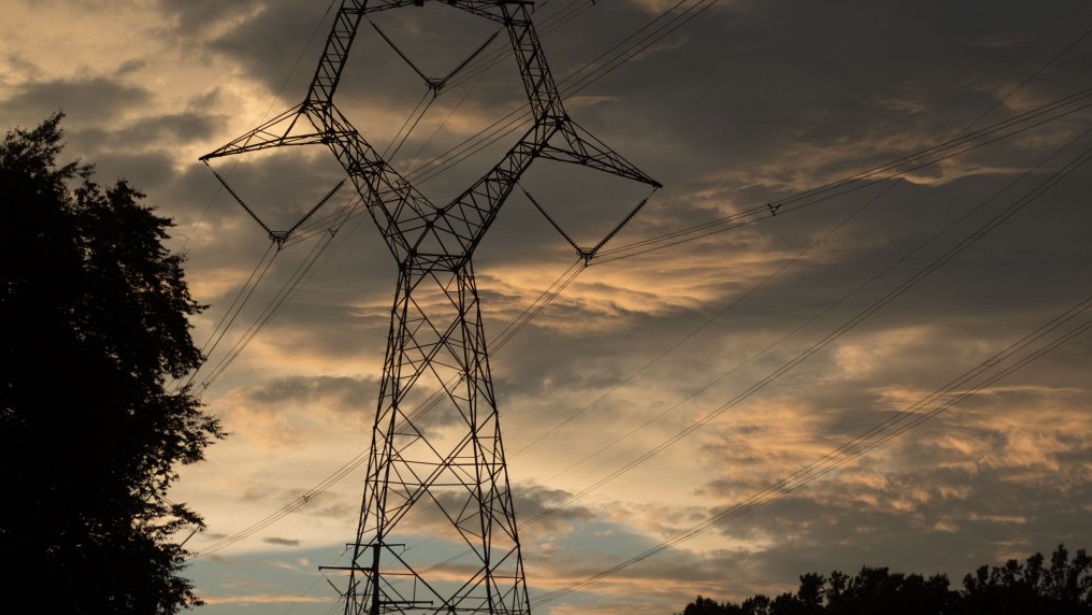The federal government is pitching Virginia on loan opportunities to help pay for the state’s transition to renewables, saying federal funding can reduce the financial burden passed on to ratepayers.
The U.S. Department of Energy’s Loan Program Office said loans are available to cover up to 80% of the costs of projects that convert fossil fuel generation sources to renewables, install transmission upgrades and develop offshore wind or small modular nuclear reactors and their related supply chains.
This story was reported and written by our media partner The Virginia Mercury
Leslie Rich, a consultant with the Loan Program Office, told the Virginia Commission on Electric Utility Regulation last week that the federal loans could provide significant savings through interest rates more favorable than those offered by commercial lenders.
“Given that the utilities in Virginia plan to spend tens of billions of dollars … that can amount to hundreds of millions of dollars of savings that are passed directly through to customers and ratepayers in Virginia,” said Rich. “And that serves to lower the customer bill impact associated with the energy transition and the Clean Economy Act.”
The Virginia Clean Economy Act, passed by the General Assembly under Democratic control in 2020, commits the state’s electric utilities to decarbonizing the electric grid by midcentury.
To be eligible for the federal loans, projects must achieve credible greenhouse gas or pollution reductions, provide a community benefits plan, commit the dollars from the federal government by 2026, and demonstrate how they will repay the loan.
“There are lots of departments within the Department of Energy that are awarding grant funding,” Rich said. “Ours are loans — they need to be paid back.”
Virginia would also have to create what the feds call a State Energy Financing Institution, or SEFI, to hold a state investment of 3% to 5% of project costs to show it has “skin in the game,” explained Tom Hucker, another consultant with the Loan Program Office. Different state agencies like the Department of Housing and Community Development, Department of Energy or Virginia Resources Authority could receive the funds, but the state would need to devise a program to dole out the federal contributions.
“We bring a lot of capital to the table as long as you can bring the developers or the tax credits they’re claiming can close the gap and provide the rest of the equity that’s required,” said Hucker.
Virginia Department of Energy Director Glenn Davis, who previously represented Virginia Beach as a Republican delegate, told the commission his office is exploring ways to access a variety of funds, including the federal loans. But he said the agency’s staffing capacity can make it difficult to go after dollars.
“That’s a challenge,” Davis said. “We only controlled about $75 million up until this past year.” Over the next five years, he said, “we’re over a billion dollars.”
If Virginia is interested in the loans, the General Assembly — which will convene this January under narrow Democratic control — will have to pass legislation to create the SEFI funding mechanism.
Del. Rip Sullivan, D-Fairfax, the House patron of the Virginia Clean Economy Act, said in an interview that Virginia ought to be doing what it can to access the federal funding “as soon as possible.”
“I don’t know why we wouldn’t,” Sullivan said, adding that he thinks there could be support across the aisle for the idea.
Requests for comment from House and Senate Republican spokespeople were not returned.
Appalachian Power Company, which is Virginia’s second-largest electric utility after Dominion Energy, said it has a team of employees pursuing grants, loans and other funding opportunities available.
“With regard to all grants, we evaluate the cost benefit for our customers and select the best programs to pursue,” utility spokesperson Teresa Hall said in an email. “The DOE’s Loan Program referenced appears to have solid benefits and is included in the list of programs that are under evaluation.”





